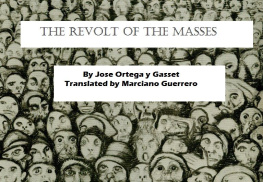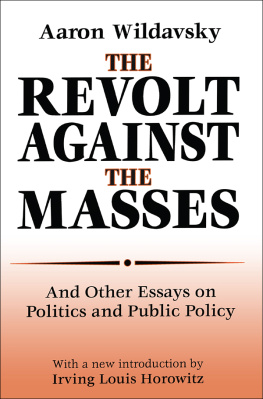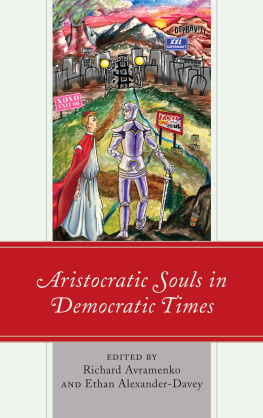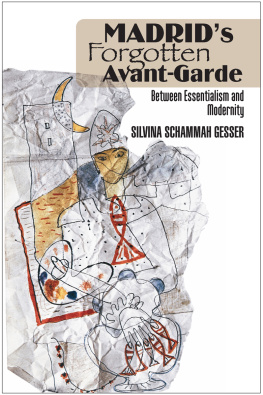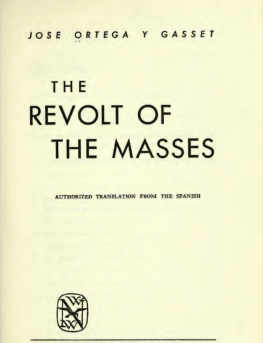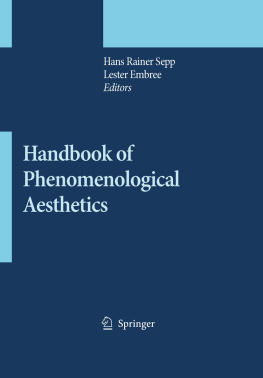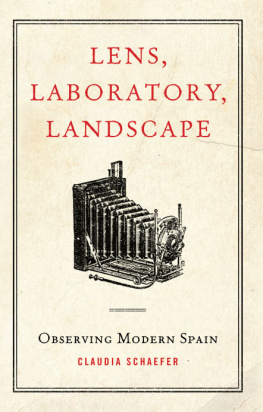Jose Ortega y Gasset [Gasset - The Revolt of the Masses
Here you can read online Jose Ortega y Gasset [Gasset - The Revolt of the Masses full text of the book (entire story) in english for free. Download pdf and epub, get meaning, cover and reviews about this ebook. year: 2012, genre: Science. Description of the work, (preface) as well as reviews are available. Best literature library LitArk.com created for fans of good reading and offers a wide selection of genres:
Romance novel
Science fiction
Adventure
Detective
Science
History
Home and family
Prose
Art
Politics
Computer
Non-fiction
Religion
Business
Children
Humor
Choose a favorite category and find really read worthwhile books. Enjoy immersion in the world of imagination, feel the emotions of the characters or learn something new for yourself, make an fascinating discovery.
- Book:The Revolt of the Masses
- Author:
- Genre:
- Year:2012
- Rating:4 / 5
- Favourites:Add to favourites
- Your mark:
- 80
- 1
- 2
- 3
- 4
- 5
The Revolt of the Masses: summary, description and annotation
We offer to read an annotation, description, summary or preface (depends on what the author of the book "The Revolt of the Masses" wrote himself). If you haven't found the necessary information about the book — write in the comments, we will try to find it.
Jose Ortega y Gasset [Gasset: author's other books
Who wrote The Revolt of the Masses? Find out the surname, the name of the author of the book and a list of all author's works by series.
The Revolt of the Masses — read online for free the complete book (whole text) full work
Below is the text of the book, divided by pages. System saving the place of the last page read, allows you to conveniently read the book "The Revolt of the Masses" online for free, without having to search again every time where you left off. Put a bookmark, and you can go to the page where you finished reading at any time.
Font size:
Interval:
Bookmark:
The Revolt of the Masses |
By Jos Ortega y Gasset |
Translated by Marciano Guerrero |
4/7/2012 |
From Plato to Rousseau, to John Locke, and to our contemporary Francis Fukuyama, political theorists have always attempted to look back to find the agents of change of civilization. In The Revolt of the Masses, Jos Ortega y Gasset focuses on the phenomenon of the mass-man as the source of the changes for ill or good in the European and American societies. |
TABLE OF CONTENTS
Essay 1 Introduction: Biography and Works
Essay 2 Peaceful Coexistence: Pessimism, Superiority, and Liberalism
Chapter 1 The Reality of the Masses
Ch22 The Rising of the Historic Level
Ch3 The Altitude of the Times
Ch4 The Growth of Life
Ch5 A Statistical Datum
Ch6 The Dissection of the Mass-Man
Begins
Ch7 Noble Life and Vulgar Life
Ch8 Why the Masses Intervene in
Everything
Ch9 Primitivism and the Technical
Ch10 Primitivism and History
Ch11 Age of the Self-Satisfied Dandy
Ch12 The Barbarism of "Specialization"
Ch13 The Greatest Danger, the State
Ch14 Who Commands in the World?
Ch15 Arriving at the Real Issue
Endnotes
Jose Ortega y Gasset (1883 1955) may be Spain's most important philosopher of the 20 th century, although some may argue that Miguel De Unamuno may have that claim. That will not be settled here. I will simply say that both men were importanteach in his own way.
From 1898 to 1902 Ortega studied at the University of Madrid, earning his bachelor's degree in the Faculty of Philosophy and Letters. Two years later he earned his doctorate with a thesis The Terrors of the Year 1000 Critique of a Legend . In 1905 he went to Germany and studied at the Universities of Leipzig, Berlin and MarburgMarburg was then the hotbed of philosophical inquiry in Germany. In 1910 Ortega became professor of metaphysics in the University of Madrid, until the outbreak of the Spanish Civil War in 1936.
Ortega began his literary activity as a writer in 1902. His collaborations in newspapers and magazines, his books, lectures and publishing efforts single-handedly changed Spanish intellectual life, and later, his influence spread throughout Latin America. In 1923 he founded the Revista de Occidente, which kept Spanish-speaking readers fully informed of all intellectual issues and movements. By means of translations Ortega incorporated into the Spanish thought the most important parts of German idealism and classical works.
From 1936 on Ortega lived in France, Holland, Argentina, Portugal and Germany, with sojourns in Spain beginning in 1945. These were his mature years as evidenced by his mature work, and the rush to translate his works. Ortega always had Spain on mind, and all his work is conditioned by his nationalism.
That Ortega was a great writer, there is no doubt; suffice it to read a few pages to realize that we are in front of a consummate stylist. Not only does he occupy a secure place among the half-dozen most admirable Spanish prose writers of the century, but also the top slot. His literary gifts permitted him to channel a transformation of the language into a vigorous stream of clear philosophical expression. By creating a lexicon until then inexistent, he influenced many young writers into clarity of expression. While writers like Heidegger dwelled in mystical and hermetic jargon, Ortega opted for transparency of language. However, he did develop a tendency for aphoristic and metaphorical writing. Using metaphors not just for adornment, nor for personal satisfaction, but for their value to bring to light difficult ideas, was his aim. He was fond of saying, that "In philosophy, clarity is courtesy."
At the same time, Ortega achieved a renewal of certain literary forms. The writing of his works in view of the circumstances in Spain obliged him for many years to publish his thought in articles in newspapers or in essay form; he offered just that amount of philosophy that his readers could effectively absorb at any moment. "It was necessary to seduce readers toward philosophical problems with lyrical methods," he once said. Thus, Ortega wrote articles and essays of a special nature, which constitute some of the most important works of the twentieth century.
Ortega's interest was not limited to strictly philosophical problems; rather, he carried his philosophical point of view to all themes of life: literature, art, politics, history, sociology-all human themes have been dealt with by him. And with respect to an enormous number of questions, one often finds in a page or two by Ortega the illumination one has sought in vain in heavy volumes. However, all his writings, even those that seem furthest removed from philosophy, are linked to a philosophical purpose, and they can be understood fully only in the light of his system. This is because Ortega concerned himself above all with philosophy; and so today, centuries after Suarez, Spain again reckons with an authentic, original and strict metaphysician. By means of his intellectual work and influence, Ortega made philosophy in Spain not only fresh and fun, but also accessible to contemporary readers!
Ortega's literary production was deep and expansive as an ocean. His Complete Works, collected in six volumes, contain writings published from 1902 to 1943. His most important works are Meditations on Quixote (1914); The Spectator (eight volumes 1916- 1934) Invertebrate Spain (1921); The Theme of Our Time (1923); The Atlantises (1924); The Dehumanization of Art and Ideas on the Novel (1925); Kant (19244- 1929); The Revolt of the Masses (1930); and The Mission of the University (1930).
Because other translations are veritable literal translations and contain many errors and rather than translations are rough paraphrasing and interpretations I have labored to present a fresh and accurate translation that honors the memory of Jose Ortega y Gasset. One aim has motivated me from beginning to end of this project: to present to English readers the Spanish philosophers ideas as truthful as he wrote them in his original language. My reward will be after readers finish reading the book to have readers say: nothing was lost in the translation.
The thought of Jose Ortega y Gasset continues to show its relevancy in view of the need in the 21 st century for a peaceful coexistence among countries; a coexistence that would transcend politics and religion and other surmountable differences.
Ortegas thought defends the need to think of countries and continents as coexisting in zones that transcends politics, with common goals and aspirations that will enable them to work together on common projects. The European Union is a perfect example of Ortegas vision.
The Revolt of the Masses partially published as a series of essays in the 1920's, saw its final publication as a book in 1930. Afterwards Ortega expanded and clarified his ideas by writing two related lengthy essays: "Preface for the French" and "Epilogue to English." Many of his ideas in The Revolt of the Masses remain prophetic and useful for subsequent generations.
Three writers definitely influenced the thinking of Ortega y Gasset. From Schopenhauer he assimilated a sense of pessimism for the European race. From Nietzsche he saw that there was an audience for Nietzsches idea of the superman. And from John Stuart Mill he adopted his libertarian ideas. Three notions seem to permeate and guide Ortegas writing: pessimism, the superior individual, and liberalism.
Font size:
Interval:
Bookmark:
Similar books «The Revolt of the Masses»
Look at similar books to The Revolt of the Masses. We have selected literature similar in name and meaning in the hope of providing readers with more options to find new, interesting, not yet read works.
Discussion, reviews of the book The Revolt of the Masses and just readers' own opinions. Leave your comments, write what you think about the work, its meaning or the main characters. Specify what exactly you liked and what you didn't like, and why you think so.

